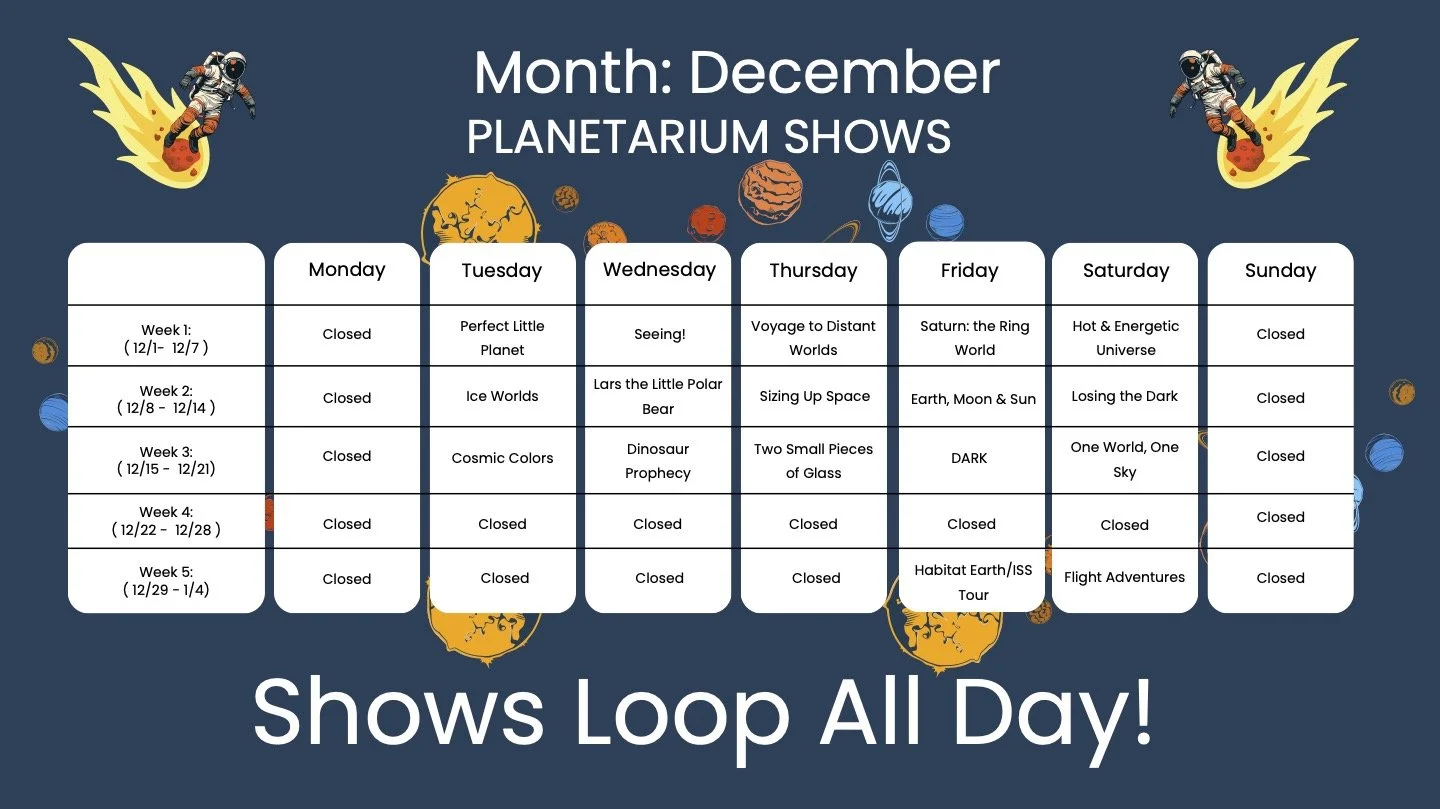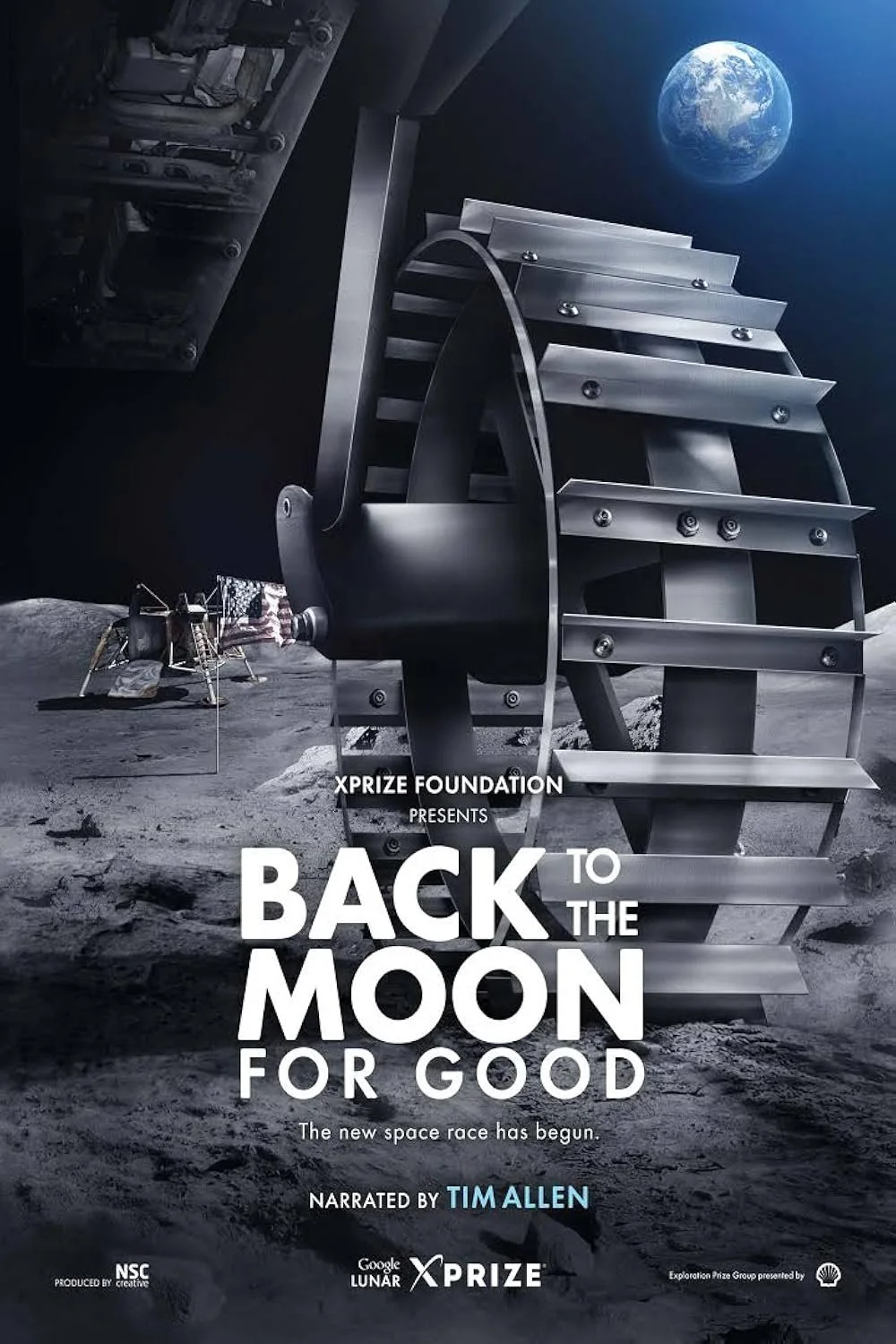Farish Planetarium
The Farish Planetarium at the Living Arts & Science Center provides a dynamic space as an attractive attraction for discovery, offering captivating shows that explore the wonders of space, science, and nature. Designed for all ages, it’s a place where learning meets imagination.
Planetarium Yoga?
YES. Join us for Planetarium Yoga, a unique experience combining gentle movement with the calming atmosphere of the dome. Sessions take place from 10:30 to 11:30 AM—adult-only classes are held on the 1st and 4th Saturdays, while the 2nd Saturday is reserved for kids and their adults. A 1:1 adult-to-child ratio is required to help ensure safety and supervision throughout the session. Please bring your own yoga mat and wear comfortable clothing. Pre-registration is required, and kids must remain with their adult at all times.
For tickets visit this link.
Show Descriptions
The Farish Planetarium features engaging shows for all ages. From playful space adventures with familiar characters to awe-inspiring journeys through the cosmos. Each program is designed to spark curiosity and deepen understanding of science, space, and our place in the universe. Whether you're seeking a fun space-themed adventure or a deeper dive into science and discovery, there’s a show for everyone under the dome.
Habitat Earth
(Suggested for ages 6+)
Plunge below the ocean’s surface to explore the dynamic relationships found in deep ocean ecosystems; dig beneath the forest floor to see how Earth’s tallest trees rely on tiny fungi to survive; and soar to new heights to witness the intricate intersection between human and ecological networks.
Hot and Energetic Universe
(Suggested for 8th–12th grade)
Journey through the cosmos to explore the hottest and most extreme environments in space; discover how high-energy radiation reveals powerful processes in galaxy clusters, around supermassive black holes, and within exploding stars; and uncover how these energetic signals help us understand neutron stars, our own Sun, and the dynamic heart of the Milky Way.
Cosmic Castaways
(Suggested for 6th-12th grades)
There are places where the night sky has no constellations.
No Orion, no Big Dipper, nothing but a few lonely, far away stars and a few faint, ghostly patches of light. Most stars lie within the crowded boundaries of galaxies, travelling with their brothers and sisters in a vast galactic family. But some find themselves on their own, deep within voids between the galaxies. These are the cosmic castaways.
Perfect Little Planet
(Suggested for K-5th grades)
Imagine the ultimate space vacation. Discover our solar system through a different set of eyes – a family from another star system seeking the perfect vacation spot. Fly over the surface of Pluto, our best known Dwarf Planet. Dive over the ice cliffs of Miranda.
Sail through the rings of Saturn. Feel the lightning storms at Jupiter. And walk on the surface of Mars. Which destination would you choose? This is the solar system journey for space travelers of all ages.
Out There
(Suggested for 6th–12th grades)
Travel through space and time to discover how our understanding of the universe has evolved—from seeing Earth as the center of everything to realizing it’s just one of countless worlds. Explore how powerful telescopes have revealed that most stars host planets, and how these discoveries have outpaced even science fiction, reshaping our place in the cosmos.
Earth, Moon & Sun
(Suggested for K-5th)
This planetarium show explores the relationship between the Earth, Moon and Sun with the help of Coyote, an amusing character adapted from Native American oral traditions who has many misconceptions about our home planet and its most familiar neighbors.
His confusion about the universe makes viewers think about how the Earth, Moon and Sun work together as a system. Native American stories are used throughout the show to help distinguish between myths and science.
One World, One Sky
(Suggested for ages 2-6)
Explore the night sky with Big Bird, Elmo, and a friend from China named Hu Hu Zhu! In this planetarium show featuring beloved characters from Sesame Street, you'll learn about the Big Dipper, the North Star, the Sun and the Moon. It's the perfect introduction to space for our youngest astronomers.
Back to the Moon
(Suggested for 4th–12th grade)
Join international teams competing for the $30 million Google Lunar XPRIZE as they design, build, and launch robotic spacecraft to the Moon; follow the bold steps of engineering and innovation as diverse groups around the world work toward landing, surface travel, and scientific discovery. Along the way, witness the spirit of competition and collaboration driving humanity’s return to the Moon—and glimpse a stunning vision of what a future lunar presence might look like.










